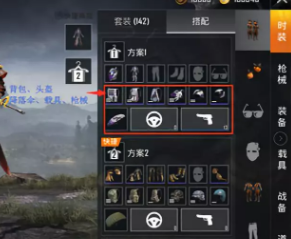how many types of cryptocurrencies are there Top
European Central Bank President Lagarde: The European Central Bank did not discuss neutral interest rates this week. Many things will become clear in the next few months, not in the next few weeks.Macron said that it opposed the free trade agreement reached between the EU and MERCOSUR. On December 12th, local time, French President Macron, who was visiting Poland, said that he disagreed with the free trade agreement reached between the EU and MERCOSUR. Macron said that the impact of the agreement on the agricultural market caused widespread concern, and France would not sacrifice its agricultural sovereignty. On the same day, Macron also said that Europe must strengthen its investment in security, build a European defense base and reduce its strategic dependence on the outside world. The EU and MERCOSUR reached a trade agreement on December 6th. The Southern Common Market was established in 1991. At present, its members are Brazil, Argentina, Uruguay, Paraguay and Bolivia, of which the first four are founding members. The vast majority of goods among member countries are free to trade without tariffs, and a unified foreign tariff policy is implemented. It is understood that the trade agreement needs to be approved by at least 15 of the 27 EU member States, and it needs to be voted by the European Parliament before it can be approved. France, Poland and Italy opposed the agreement. (CCTV News)European members of NATO are considering increasing the proportion of military expenditure. On the 12th, several European officials reported that some European members of the North Atlantic Treaty Organization are considering increasing the proportion of national defense expenditure in their gross domestic product (GDP), from the current 2% to 3%.
The rise in food prices has pushed the wholesale inflation in the United States to accelerate unexpectedly. The prospect of interest rate cuts next year is uncertain. The wholesale inflation rate in the United States unexpectedly rose in November, and the soaring egg price masked the moderate impact of price increases in other regions. According to data released by the Bureau of Labor Statistics on Thursday, the producer price index (PPI) rose by 0.4% month-on-month, the biggest increase since June, and economists surveyed by Bloomberg expected a median of 0.2%. PPI increased by 3% compared with the same period of last year, the biggest increase since the beginning of 2023. The core PPI excluding food and energy increased by 0.2% from the previous month and 3.4% from the same period of last year. The CPI report released on Wednesday showed that the core inflation rate in the United States remained firm for the fourth consecutive month. This series of data brought uncertainty to the outlook of prices and interest rates next year, especially when Trump threatened to raise import tariffs after taking office. Economists pay close attention to the PPI report because several of its breakdown data will affect the personal consumption expenditure price index (PCE) that the Federal Reserve is concerned about. Although PCE data will not be released before the Fed policy meeting next week, central bank officials will have a good understanding of the data according to CPI and PPI reports. The market generally expects the Federal Reserve to cut interest rates by 25 basis points next week, but the pace of interest rate cuts is expected to slow down next year.Australia plans to force technology giants to pay for news content. The Australian government announced a new tax plan on the 12th, which will force technology giants to pay for news content to Australian media companies, otherwise they will face the risk of being charged higher taxes. According to the Australian government's plan, all digital platforms with an annual income of more than A $250 million (about US$ 160 million) in Australia must reach a commercial agreement with Australian media organizations on the use of news content, otherwise they will face the risk of being charged higher taxes. (Xinhua News Agency)US President-elect Trump: If it cannot be approved, it is not excluded to use recess appointments to fill cabinet vacancies. It is "possible" to veto the budget or appropriation that does not conform to the newly established government efficiency department.
Taihe New Materials: At present, the domestic market share of the company's aramid 1414 products is about 50%. Taihe New Materials said on the interactive platform that the company realized the pilot test of aramid 1414 in 2008 and began to cultivate domestic and foreign markets, and realized industrial production and commercial operation in 2011. At present, the domestic market share of this product is about 50%.European Central Bank President Lagarde: The proposal to cut interest rates by 25 basis points has been agreed by everyone. European Central Bank President Lagarde said that the proposal to cut interest rates by 25 basis points has been agreed by everyone, and inflation is expected to reach 2% in the medium term. There are some discussions about cutting interest rates by 50 basis points, but it is generally believed that a 25 basis point cut is the right move. The wage level will reach a level consistent with the inflation target of 2%.Eurozone government bond yields barely changed, and eurozone government bond yields barely changed, after the European Central Bank cut interest rates by 25 basis points, as widely expected. Michael Brown of Pepperstone said in a report: "The interest rate cut was accompanied by a policy statement, which' copied and pasted' the policy guidance issued after the October meeting." The ECB reiterated that it would "follow the method of data dependence and successive meetings to determine the appropriate monetary policy stance." According to Tradeweb's data, after the interest rate was determined, the yield of two-year German government bonds was 1.941%, slightly lower than the previous 1.951%, while the yield of 10-year German government bonds was 2.130%, which was almost unchanged that day.
Strategy guide
Strategy guide
























